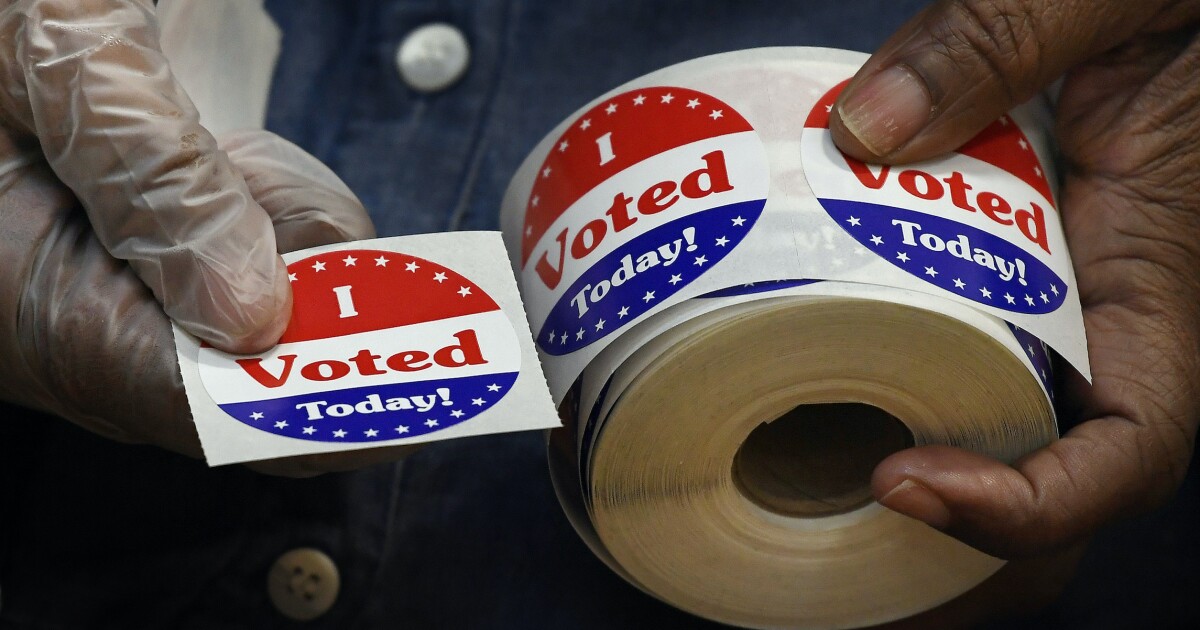

More registered Democrats than Republicans have cast their ballots early just over a week before Election Day, and more than 22 million people have already availed themselves of opportunities to vote.
In the 23 states with party registration data, 45% of early voters were registered as Democrats, while 33.3% of early voters were registered as Republicans, according to the U.S. Elections Project, which compiles early voting data.
Far more Democrats have voted by mail than Republicans; for in-person early voting, which is not available in every state, more Republicans have cast ballots than Democrats.
Only 10 states report their in-person early voting data with party registration.
But the numbers paint a picture of a fired-up electorate that is already weighing in massive numbers on a consequential midterm election.
Georgia has broken turnout records in early voting this cycle as the state hosts two of the most closely watched contests in the country: one for Senate and the other for governor.
More than 1.6 million Georgians have already voted in the 2022 election, most of them in person under the state’s new voting laws.
The number represents an uptick from the same point in the 2018 midterm elections, ultimately a wave year for Democrats due in large part to the unpopularity of former President Donald Trump.
President Joe Biden is suffering from similar political headwinds this cycle, with voters overwhelmingly blaming his party for rising prices and increased crime.
Despite all of the early ballots cast, some election results may take days — or even weeks — to become clear.
In Pennsylvania, for example, election workers are barred from opening mail-in ballots until the morning of Election Day. As of Monday, 854,878 Pennsylvania voters had submitted absentee or mail-in ballots, and that number is expected to grow over the next week.
Leigh Chapman, the state’s acting secretary of state and the chief of its elections, has warned in recent days that the limits on when election workers can start counting mail-in ballots could delay reporting on the election results past election night.
In Georgia, if neither candidate in the Senate or governor’s race cracks 50% of the vote on Election Day, the contest will head to a runoff, adding weeks to produce a winner.
Democrats could be heartened by early voting numbers that show registered members of their party outpacing Republicans in voting so far.
But Democrats still have reason to worry.
Young voters, who typically lean toward the Democratic Party, make up just a fraction of the early voting tally to date, according to the U.S. Elections Project.
A Politico analysis of the age-specific data found that fewer young voters have cast their ballots early compared to this point in 2020.
CLICK HERE TO READ MORE FROM THE WASHINGTON EXAMINER
That could spell trouble for a Democratic Party that will need its base to turn out strongly in order to overcome what is expected to be a wave of GOP support on Election Day.
A handful of states key to deciding control of Congress have seen significantly more participation from older voters than younger ones to date. In Pennsylvania, for example, a whopping 87% of the early vote so far has come from people 41 and older.







